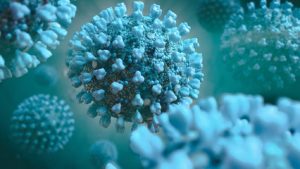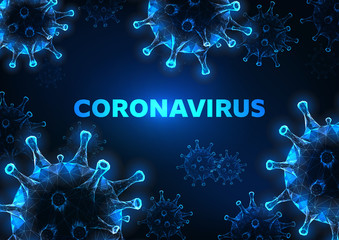As the world shuts down due to the recent outbreak of the coronavirus disease, it might interest you to get your hands on some helpful facts about the virus and how we get to where we are now.
The coronavirus disease 2019 (COVID-19) is a disease caused by a virus called the SARS-COV-2. SARS-COV-2 was first detected in January 2020, in Wuhan, a city in China with a population of over 10 million people.
The laboratory test leading to the discovery of the novel coronavirus began after several cases of pneumonia reported in hospitals across the city had no known causative microbes which could be linked with the symptoms or treated with drugs for the known cases of pneumonia.
As of March 11, 2020, the world health organization has declared the coronavirus disease 2019 (COVID-19) a pandemic as it has now spread to over 150 countries across the globe. As of 23 March, there are more than 341,000 cases of COVID-19 in over 190 countries and territories, which has resulted in more than 14,700 deaths and over 99,000 recoveries.
What is the coronavirus?

Coronavirus
The novel coronavirus better designated as the SARS-COV-2 belongs to a family of viruses called the coronaviridae.
The name coronavirus is gotten from the Latin word corona which means halo. The term is primarily used to describe the spikes surrounding the spherical core of the virus when it is viewed under an electron microscope.
The coronavirus is a single-stranded RNA type of virus which can affect birds, reptiles and mammals. In humans, the coronavirus causes mild symptoms such as fever, cough, shortness of breaths etc. which are similar to common flu.
There are have been previous breakouts of the coronavirus in humans. The first outbreak of the coronavirus was the severe acute respiratory syndrome (SARS) and the Middle East respiratory syndrome (MERS). SARS outbreak also originated in china in 2002 while the MERS outbreak originated in Saudi Arabia in 2012.
What is the origin of the coronavirus?

The SARS-COV-2 while belonging to the coronavirus family is a novel strain of the virus which has never affected the human population before. Prior to the outbreak in China in 2019, the SARS-COV-2 has been living in the bodies of animals.
As such, it is hypothesized, that the virus crossed into the human population through the consumption of poorly cooked meat, most likely the Pangolin. The virus tends to remain in the bodies of animals and undergo significant changes before they can affect humans.
For instance, the coronavirus virus, in its most primitive stage resides in the bodies of bats. This is true even for the SARS and MERS virus. The virus then changes, and when it has mutated significantly enough, it can affect mammals and humans.
In the case of the 2019 novel coronavirus, it infects Pangolin after sufficiently mutating in the bodies of bats and then humans from the body of Pangolin. The MERS was believed to have affected camels before humans, and the SARS is speculated to have affected civets and then humans.
Did coronavirus come from bats?
Many research have suggested that the COVID-19 virus was contracted from bats. According to the research, the bats then transmitted the virus to another animal, possibly a Pangolin, then to humans. However, the pathogenic powers of the virus could have developed inside the animals or when it entered the human body.
Who was the Coronavirus first case?
The first victim of the coronavirus was reportedly 55-year-old man who fell ill on 17 November 2019 in Hubei, Wuhan.
What are the symptoms of COVID-19?
So far information has shown that the symptoms of COVID-19 can range from very mild (with some patients showing no signs at all) to very severe symptoms requiring medical attention.
Some of the most commonly reported symptoms of coronavirus are very similar to common flu. These includes:
- Fever
- Sore throat
- Cough
- Difficulty in breathing/ shortness of breath
- Persistent chest pain
The virus can remain in the body for a period of 2-14 days before a person can start developing symptoms. If you are experiencing persistent coughs coupled with a feeling of pressure or pain in the chest and shortness of breath, you might want to get tested for the COVID-19.
Is the COVID-19 deadly?

Compared to the diseases caused by other coronaviruses which have crossed into the human population, the novel coronavirus is not very deadly.
Take, for instance, the WHO said the SARS virus kills about 9 per cent of those infected and the MERS which thankfully, did not spread far enough, was even more deadly, killing about one-third of those affected.
The novel coronavirus, however, has a fatality rate of about 3 per cent. While this is way lower than the fatality rate of both the MERS and SARS virus, the spreadability of the COVID-19 virus is exponential compared to the former whose spreadability is very limited.
As such, the COVID-19 virus has killed over 8,000 people compared to SARS which killed about 800 people worldwide before its disappearance in 2003.
So, while the COVID-19 has a low fatality rate, its spreadability rate is very high, giving it the ability to infect more people and cause more deaths.
What is being done to contain the coronavirus?
Scientists all over the world are in a race to find a suitable vaccine for the COVID-19 with many speculating that an effective vaccine will most likely be developed in 2021 and not before then.
To curb the spread of the novel coronavirus, governments the world over are now shutting down schools, churches, mosques and other centres that may require a large number of gathering. By preventing large social gathering, the rate of spread of the coronavirus will be sufficiently reduced.
International flights have also been cancelled as most countries have banned the travel across international borders.
Is there a cure for Coronavirus?
After the coronavirus was discovered in November, many labs have started looking for a treatment to combat the coronavirus. Nonetheless, there is currently no cure for the coronavirus.
The treatment of the coronavirus is done with regard to the kind of care given for influenza (seasonal flu) and other severe respiratory illnesses. This form of treatment is known as “supportive care,” according to the Centers for Disease Control and Prevention (CDC). The treatments focuses on treating the symptoms, which usually involves fever, cough, fatigue and shortness of breath. In mild cases, the treatment for coronavirus would simply involve rest and fever-reducing medications such as acetaminophen (Tylenol) for comfort.
How do you keep yourself safe from coronavirus?
The first step to keeping yourself safe from the coronavirus is to distance yourself from all social large social gatherings.
You may also want to limit your physical contact with people as it can spread through handshakes.
Don’t touch your face.
Ensure your foods are cooked properly, especially meats and wash your hands often or make use of hand sanitizers if you cannot get to soap and water.
Practice good respiratory hygiene
Self isolation
Social Distancing.








